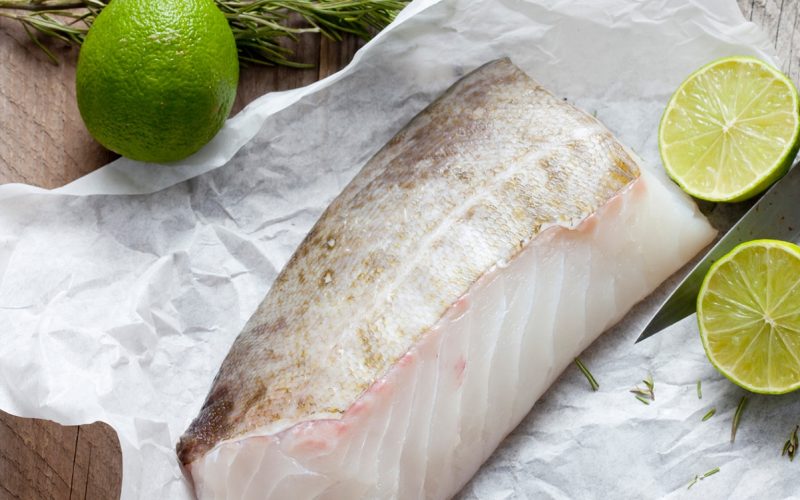Do you think about the significant sources of collagen? Fish collagen certainly is at the top of the list.
While there are advantages attributed to all animal collagen sources, fish collagen peptides are understood to have the fastest absorption and bioavailability due to it’s tinier particle sizes in comparison to other animal collagen’s, which makes it safe to infer to them as an antioxidant powerhouse.
Bioavailability is highly essential since it largely determines the efficacy of any nutrient you ingest. Fish collagen has superior bioavailability and is absorbed into the body up to 1.5 times faster than bovine or porcine collagen.
Since it’s absorbed more effectively efficiently and enters the bloodstream faster, it’s considered the best collagen source for medicinal purposes.
With fish collagen’s ability to become easily absorbed by the human body is a result of its lower molecular weight and size, which enables the collagen to be processed by the body at a higher level through the intestinal barrier into the bloodstream and transmitted throughout the body.
This steers collagen synthesis in the skin, cartilage, bones, and several other essential body parts. Although a lot of persons tend not to eat the parts of the fish that contain collagen (mainly skin and scales), preparing homemade fish stock or supplementing with collagen is the next best thing.
What Is Fish Collagen?
Fish collagen is an intricate structural protein that helps conserve the strength and flexibility of the nails, skin, ligaments, cartilage, bones, muscles, tendons, blood vessels, gums, hair, skin, and eyes.
It’s a type I collagen, and it is the most substantial collagen in the human body. Type I is well known for helping to provide the bases for beautiful skin, healthy connective tissues, and sturdy bones.
Fish collagen peptides have very distinct amino acid compositions with a high-level concentration of glycine, hydroxyproline, and proline. When fish collagen is consumed, hydroxyproline peptides are not entirely digested to free amino acids and can be detected in the blood.
These hydroxyproline peptides activate cells in the skin, joints, and bones, and lead to collagen synthesis via cell activation and growth.
The fins, bones, scales, and skin of fresh or saltwater fish are utilized for the production of fish collagen supplements. Since these parts are deemed waste products during fish processing, using them to produce other products assists in the reduction of environmental pollution.
Health Benefits of Fish Collagen
1. Anti-Aging
Fish collagen is a type I collagen, and type I collagen is what the skin comprises of, and it’s not unexpected that it can be beneficial to the skin. It helps deter and improve any signs of skin aging.
Probable skin benefits of consuming this collagen include enhanced smoothness, moisture retention, enhanced suppleness, and deterrence of deep wrinkle formation.
Hydrolyzed fish collagen is formulated with small, low molecular weight peptides, which are easily absorbed, digested, and disseminated by the human body.
Research published in 2015 indicates how several clinical trials have now been conducted, indicating the efficacy and importance of collagen peptides on skin properties, including the reduction of wrinkles, elasticity, and hydration.
Researchers surmise that hydrolyzed collagen is a viable choice in the everyday fight against the unwanted yet visible signs of aging.
2. Bone Healing and Regeneration
Fish collagen ability to boost the body’s own natural collagen creation has lately been discovered by experts; in the past, researches have suggested that collagen peptides from fish skin might have a favorable influence on bone health by boosting and enhancing bone mineral density and carrying out anti-inflammatory activity on osteoarthritis.
The objective of one 2013 study was to discern the effects of fish collagen peptides on collagen synthesis, quality, and mineralization.
The conclusions of the study indicated that fish collagen has a positive impact on collagen synthesis and collagen standard. Researchers also discovered that the fish collagen was helpful in the matrix mineralization of bone-synthesizing cells in vitro.
While this study did not make use of human subjects, it does demonstrate how to fish collagen is a biomaterial that can benefit bone healing and regeneration.
Similarly, researchers from the NC Oral Health Institute at the University of North Carolina at Chapel Hill’s School of Dentistry assessed the impacts of fish collagen peptides in an osteoblastic cell culture system.
They found that fish collagen peptide supplementation wields a positive effect on osteoblastic cells in terms of collagen synthesis, quality, and mineralization, thereby indicating the potential use of Fish collagen peptide for bone tissue engineering.
3. Wound Healing
The capacity of wound healing is ultimately based on collagen, and it is essential to the healing of wounds because it helps the body form new tissue.
Type I collagen is the most substantial structural component of the skin, so it makes perfect sense that having extra type I collagen in the body can help heal wounds faster.
It was initially believed that collagens were just structural supports. New studies have indicated that collagen and collagen-derived fragments oversee many cellular functions, including cell shape and division, cell migration, as well as other important proteins.
Collagen also influences a significant role in all phases of wound healing: hemostasis, inflammation, proliferation, and remodeling.
4. Increased Protein Intake
By eating fish collagen, one doesn’t just absorb collagen but also everything that the fish collagen contained. Fish collagen is about 97 percent protein with zero carbohydrate, fat, or sugars making it one of the best protein foods on the planet. What it does have is a very extraordinarily distinct amino acid profile.
Amino acids are organic compounds that integrate to form protein blocks. They, along with proteins, are the building matter of the human bodies.
By improving one’s protein consumption through eating collagen, one can promote workouts, avoid muscle loss (and prevent sarcopenia) and have a better recovery after a workout. More collagen protein in the diet also always aids weight management.
5. Antibacterial Abilities
Research in Canada, published in 2016, found that fish collagen has another impressive component. In consuming collagencin, which is an antibacterial peptide from fish collagen.
This new study found that collagencin entirely deter the growth of Staphylococcus aureus, more typically referred to as staph or staph infection.
Staph is a relatively serious, highly infectious infection caused by bacteria commonly found on the skin or in the nose. For future studies, marine collagens look like a favorable source of antimicrobial peptides, which could boost both for food safety as well as general human health.
6. Skin Hydration
Collagen, being the most abundant component of the extracellular matrix, is the deciding protein that is considered in skin physiology, by helping to maintain the skin structure and aiding its numerous functions to take place.
It helps retains water and supports a smooth, firm, and strong skin and prevent skin dryness.
Fish Collagen Nutrition
The exact nutritional composition of fish collagens is of varied quantity. Here’s an example of a 20-gram serving of hydrolyzed fish collagen, which contains about: (9)
- 90 calories
- 18.8 grams of protein
- 20 milligrams sodium
- 0.14 milligrams potassium
- 0.10 milligrams calcium
- 0.8 milligrams iron
Fish Collagen vs. Other Types of Collagen
Bovine (cow or beef) collagen: Bovine collagen is derived from cows, particularly from their skin, bones, and muscles.
It’s made mostly of types 1 and 3 collagen, which is a good fit considering these are the most substantial types produced and found in the human body. It’s an abundant supply of glycine and proline, and consequently useful for creatine production, building muscle and also enabling the body to make its own collagen.
Chicken collagen
The type of collagen mostly found in chicken collagen is type 2, which is good for building cartilage. This makes it advantageous for joint health, especially since this source also provides chondroitin sulfate and glucosamine sulfate, which both have anti-aging effects.
Most supplements comprising of collagen ultimately make use of chicken collagen, which provides type 2.
Fish collagen
Collagen extracted from fish has been found to be easily assimilated and provides primarily type 1 collagen, with the hydroxyproline amino acids, proline, and glycine.
Type 1 can be found throughout the whole body, eating more fish collagen has been attributed with benefits for the blood vessels, joints, skin, vital organs, and bones.
Hydroxyproline is a significant component of the collagen triple helix, and lower levels have been linked with joint degradation and, therefore, symptoms of aging.
Hydroxyproline is a requirement for collagen stability and is generated by altering normal proline amino acids after the collagen chain is built. This reaction also requires vitamin C (to help in the addition of oxygen), which is why vitamin C deficiency can result in irregularities in collagen levels.
Eggshell membrane collagen
Egg collagen in the shells and whites of eggs, comprises primarily of type 1 collagen. It helps the body with glucosamine sulfate, chondroitin sulfate, hyaluronic acid, and various amino acids that have health advantages like building connective tissue, wound healing, constructing muscle mass, and reduction of pain/stiffness.
Fish Collagen History and Interesting Facts
The first time chemists extracted collagen from fish skin is around 1985. Fish collagen which can also be called marine collagen, but marine collagen products are sometimes sourced from shellfish and jellyfish, which is not recommendable.
Fish collagen can be extracted from the fins, skin, scales, and bones, of saltwater or freshwater fish. Historically, the use of the fish was its entire body all over the world and is evident in many dishes.
In Chile and some other parts of South America, fish heads are used in a dish called caldillo de congrio, in which the fish heads are cooked with vegetables and herbs to make a nutritious collagen-rich stock, which can be used as the base for the soup.
Fish collagen is rich in essential and non-essential amino acids.
How to Choose and Use Fish Collagen + Recipes
The fish collagen supplement is accessible at the local health store or online. It’s available as powder, liquid, or pill form.
It’s also available for one to choose one that is made by a reputable company and is non-GMO and gluten-free. Also, to make sure it has no fillers, sugar, artificial preservatives, or artificial flavors.
One might find vitamin C or hyaluronic acid included in the marine collagen supplement because they boost the absorption of collagen. It also advisable for one to beware of collagen supplements made in countries with lax manufacturing standards and control.
When collagen is hydrolyzed, the protein molecules are further broken down into tinier molecules. Hydrolyzed fish collagen supplements are more easily digested and absorbed by the body.
Fish collagen is different from marine collagen. Many marine collagen products are sourced from shellfish and jellyfish, which is nor recommendable.
Collagen products should be stored in a cool, dry place.
There are many fish collagen products on the market today that are tasteless, odorless, or have a neutral, non-fishy non-fishy in case one doesn’t want a fish college supplement that smells or tastes fish-like. It’s also possible to easily mix the powdered form of collagen into hot water, smoothies, tea, or coffee, and it can also be added to soups or sauces.
Homemade fish stock is another incredible way to achieve the collagen benefits of fish. By trying a Homemade Fishstock Recipe packed with collagen and other health-beneficial nutrients, as well as with other fish bone broth recipes.
In extension to adding a fish collagen product to one’s diet, one can also get this enormous amount of protein by collagen supplementation, such as collagen hydrolysates. Collagen hydrolysate supplements are accessible at most health food stores or pharmacies.
Fish Collagen Potential Side Effects
There are no generally revealed side effects of fish collagen. If a person has a fish allergy, then they might have to avoid these fish collagen products.
However, many builders of collagen products derived from fish extract the water-soluble allergens from the skin and considerably reduce the likelihood of an allergic reaction.
Although If one consumes fish collagen and gets a mild allergic reaction, then it is advisable to discontinue use, and if one has a serious allergic reaction, one should seek medical attention immediately.
One should consult a doctor before taking fish collagen supplements, or if taking any other medications or have any ongoing health concerns.
Conclusively, Fish collagen peptides are understood to have the best absorption and bioavailability due to their tinier particle sizes in comparison to other animal collagens.
They’re absorbed up to 1.5 times faster and easily into the body. It’s considered the best source of collagen for medicinal purposes and wonderful for most diets, including the Paleo diet.
It’s a type I collagen, which is the most abundant collagen in the human body. Type I is best known for providing the core for beautiful skin, strong connective tissues, and sturdy bones.
This collagen is a complex structural protein that helps maintain the strength and aids flexibility of skin, arteries, ligaments, joints, bones, muscles, tendons, blood vessels, gums, eyes, nails, and hair.
It’s been indicated to slow aging, heal wounds and aid regeneration of bones, increase protein infusion, and provide antibacterial abilities. It’s sourced from the scales, skin, bones, and fins of fresh or saltwater fish. Buy Fish/Marine collagen from amazon website.









